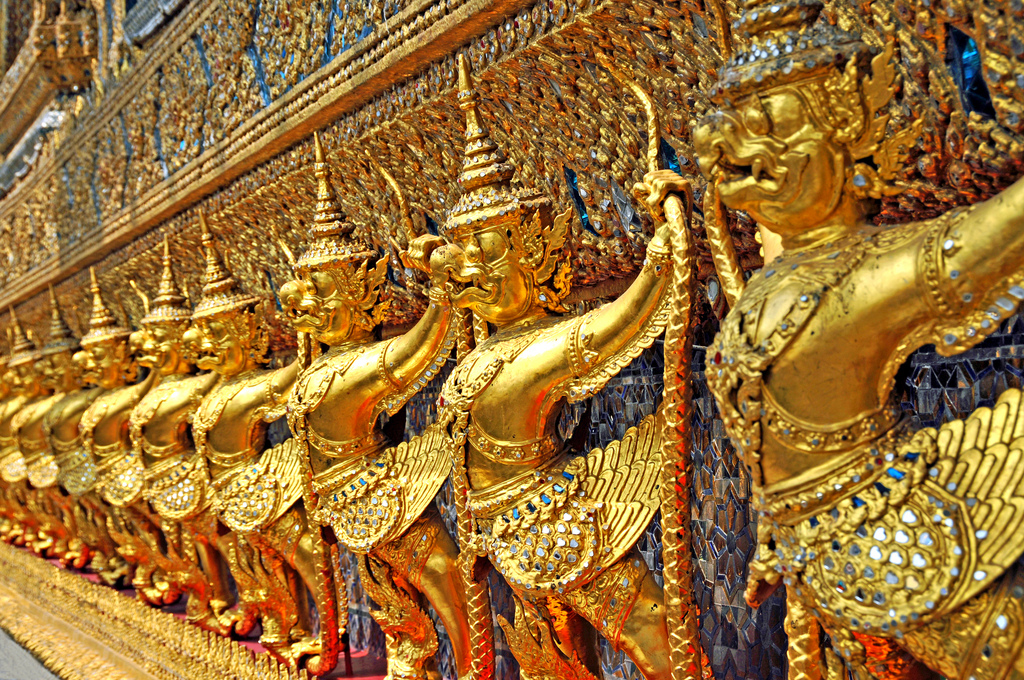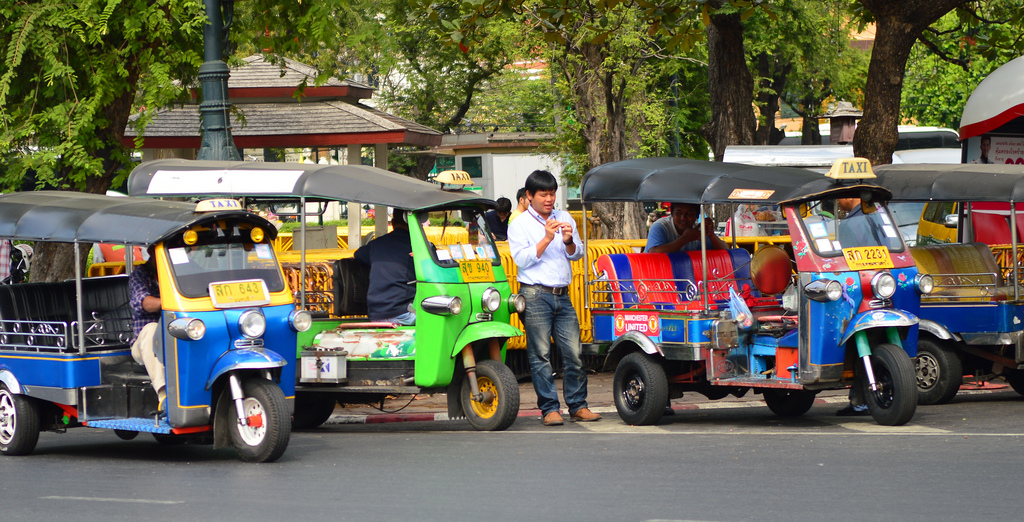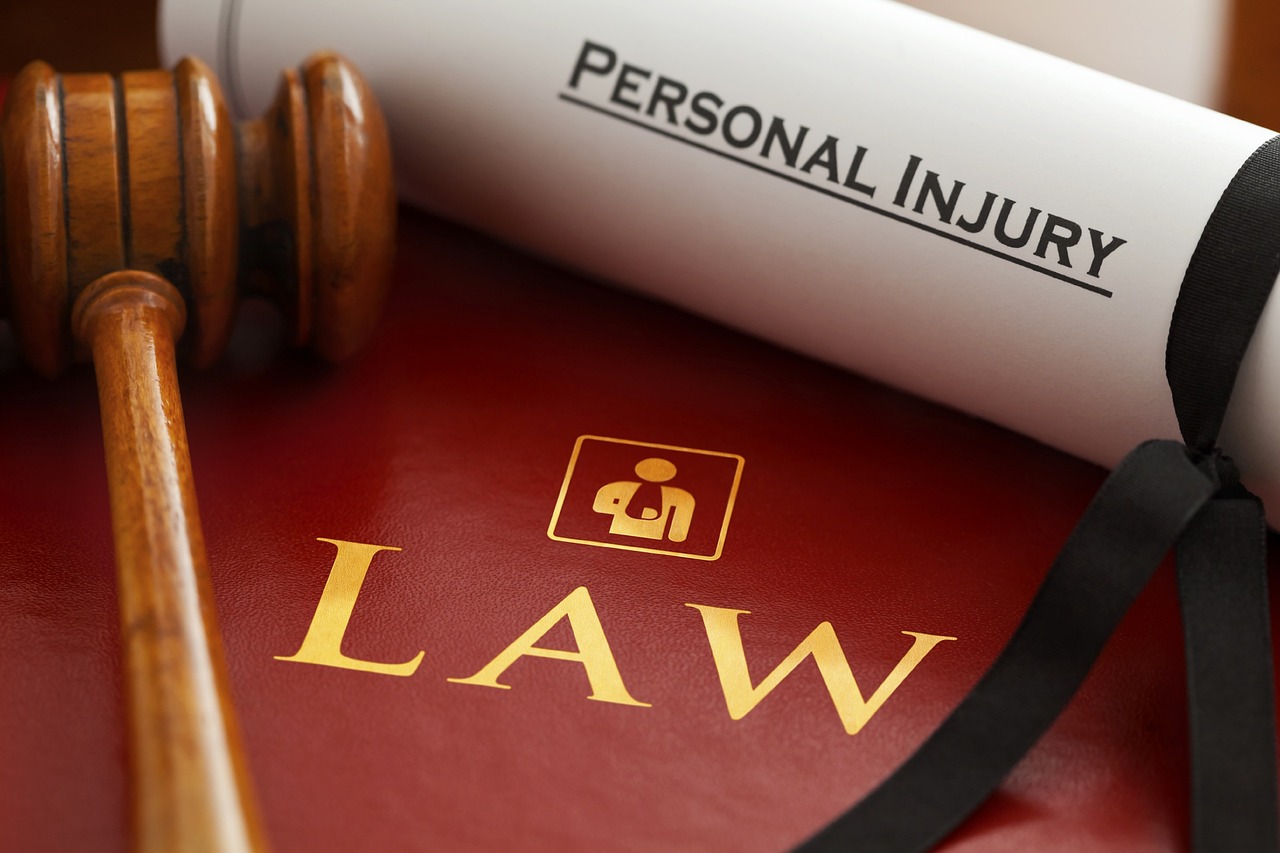Oct-2014
Relocating to Thailand
It is easy to fall in love with Thailand. The locals are friendly, the weather is warm, you can live cheap and when you glide on a boat between idyllic islands you wonder what took you so long to get here.
But notwithstanding it’s idyllic charms and mystical enchantment it is a big decision you are making when relocating yourself here. In fact, it’s safe to say a much bigger one than moving from one western culture to another. Relocating requires adaptability, but relocating to South East Asia requires adaptability on a whole different scale.
Having said that, the purpose of this article is not to be biased in any way, encouraging or discouraging relocation to Thailand in particular, but simply to share facts, dispel myths and hopefully contribute to an informed decision.
Having been in the online travel booking business, a business easy to relocate, I made the decision to move to Thailand in 2009 after spending several, extended holidays here. These are my experiences, advice and opinions.
The way I came to understand the expat community in Thailand they will, like in most other countries I assume, fall in one of three primary categories, each of which have a different set of Visa rules and requirements.
Thailand Visa Requirements
Obtaining permission and a visa to live in Thailand long term is, contrary to popular belief, not that difficult and in fact quite easy. Here is an abbreviated explanation.
1. Category One: Young people wanting to experiencing Thailand for a year or two before moving on or going back home.
Though I do not really see this category as people relocating, simply because it is not intended to be permanent, it is still something that cost money and time and, too often one sees people making the investment only to realize how different the lifestyle actually is, pack up and head out. Most do however find their feet and enjoy an experience which add to a broader perspective on life
The two primary paths people follow for a relocating for a limited time is either to enroll for language classes at a local language school, whether that be for Thai language classes or another language for which classes are offered. In this case your chosen language school will take care of the paper work for applying for your ED visa (Educational Visa) which is valid for one year afyer which you can apply for renewal for another 12 months. The cost for both classes and the visa is currently around 30 000 Thai Baht ($1 000 Dollars). But heed a warning. Your passport needs to be stamped every 90 days at which time immigration will test your progress.
The second option is to work as an English teacher in a local school. You will need to have a college degree and completed a teachers course such as TEFL or TESOL which you can also do in Thailand. In this case the training academy will see to your job placement and the school at which you are placed arranges your visa and work permit.
Teacher’s salaries are not that great, usually around 30 000 Baht ($1 000) per month, but it is still a great way to live the Thailand lifestyle for a year. The down-side? Unless you apply and get appointed at a school before you arrive you will not know the location of your placement. You could find your self at a school in a more rural and less developed location with few westerners around. This could get lonely.
2. Category Two: Retirees
As easy as pie. The only requirements are that you are at least 50 years old and able to show 800 000 Thai Baht ($25 000) in a Thai Bank account as proof you can support your self. Anyone can open a savings account in Thailand, even if you are just on holiday. Check accounts and credit cards are of course an entirely different matter. Retirement Visas are valid for one year, can be renewed every year for the rest of your life and you can exit and enter the country as many times as you wish for as long as you wish. All you need to do is get a re-entry permit before leaving.
3. Category 3: Those too young to retire and still needs to work.
This is where things get a little more complicated. If a large or international company require your services and will take care of the work permit and visa application prior to arrival you have little to worry about. Relocating here in the hope of finding a job other than teaching is wishful thinking. Employment opportunities are limited to basically the hospitality industry where you will be competing with Thai applicants.
Starting up your own business may seem confusing at first and prove challenging. The type of businesses you are allowed to operate is also limited, some reserved for Thais only. In order to qualify for a work permit for your own business you will need to employ 4 Thais, show start-up capital of 2 000 000 Thai Baht ($63 000), have a business address and fully equipped office which will be inspected by immigration at the start and periodically thereafter.
Attempting all this on your own will be futile so you will require the services of a reputable accountant to take care of the complicated application process and monthly submissions of tax, VAT and employee’s social security contributions. However, if you do obtain the services of a good accountant and have the ability to employ 4 Thais, the rest can in fact be plain sailing. Working illegally without a work permit is a definite no, no with dire consequences if you got caught.
Where to stay in Thailand
Unless you are absolutely certain you can live in an environment largely devoid of other westerners, your options will include Bangkok, a big, fast paced and congested city, the island of Phuket, Koh Samui, Chiang Mai, Pattaya or, my personal suggestion given its central location, easy access to other areas and family friendly demeanor, the town of Hua Hin located on the Gulf Coast 2 hours south of Bangkok.
These locations are well developed with good infra structure, has relatively large expat communities and sees many foreign tourists. With the exception of Bangkok and Chiang Mai, these will all allow you to live that laid-back lifestyle, on or near an idyllic beach.
Cost of Living in Thailand
The cost of living in Thailand will pretty much depend on your lifestyle, but generally speaking much, much cheaper than most western countries. In areas with larger expat communities renting a new house built to more or less western specifications can cost anything from 12 000 Thai Baht pm ($380 pm) to 100 000 Thai Baht pm ($3000 pm) and more if a stylish condo in Bangkok is your thing. One thing you can be sure of is that there is no shortage of houses and condos and you have a choice of renting fully furnished or getting your own furniture.
The price of western food in modern supermarkets will often coast the same as in the west, but once you find your feet it can again be much cheaper. Even eating at restaurants on a daily basis (I am not talking the typical western style Restaurants, but rather somewhere at a market) will also work out fairly cheap.
Medical Insurance
Thailand has good medical facilities which are much less expensive than in the west, though medical insurance is still not not something you should be without. Several medical plans with good and adequate cover are available in Thailand. In my experience medical insurance is not necessarily cheaper, but not pricy either. For a person with an average age of 35, top cover medical insurance will coast approximately $130 pm.
Schools in Thailand
Moving to Thailand with kids will certainly have its challenges, both for you and the kids. You do have the option of private schools which will be expensive and you could even adopt a home schooling approach. Government schools teach primarily in Thai and friends for your children will be limited. Moving here with school age kids is something which will require very detailed investigation above everything else.
Safety
I cannot over-emphasize how safe it is to live in Thailand. It is not a country devoid of any crime, but unless you go out looking for it, act blatantly irresponsible or get involved with an obvious wrong crowd the probability of falling victim to crime is as low as you can hope for. On the odd occasion when crime do occur it will in all probability be in an area with dense tourist populations and even then the odds are low.
Road safety is the one thing which is lacking. There is little traffic law enforcement, the ease of obtaining a drivers license adds to the undesirable safety record and you will certainly find the process which follows and accident confusing.
In Conclusion
As someone who has lived in Thailand for the better part of 5 years, had the opportunity to get to understand the culture, and made friends I can tell you it is a wonderful land with wonderful people. The secret to successfully relocating yourself to the land of smiles lies in your willingness to accept differences, to accept that the western way is not the only way and to in fact allow yourself enough time to adapt. Do not give up too soon.
My advice is to throw yourself as deep into local society as possible and find excitement in exploring and learning. Learn to speak Thai for example, learn the customs and traditions, get to understand the reason behind thought processes and Thailand and its people will be the most welcoming society you can imagine.
George Conradie
Latest posts by George Conradie (see all)
- Relocating to Thailand - October 21, 2014






Leave a Reply